
Creates the civil protection council (CPC) under the Ministry of the Interior.
The following is a list of all conten labeled as "Risk Identification & Assessment"

Creates the civil protection council (CPC) under the Ministry of the Interior.

The overall objective of the contingency plan is to support the Comorian government in order to set up a real-time and coordinated response in order to minimize the humanitarian consequences of disasters on the populations.
The following strategic objectives constitute the basic interventions planned under this contingency plan:
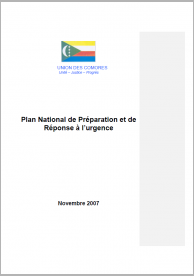
Provides national authorities and partners with a reference tool to better prepare and manage emergency situations.
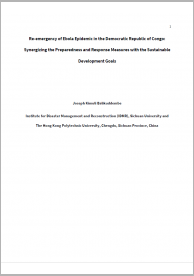
Ebola outbreaks which have re-emerged in the Democratic Republic Congo (DRC) have continued to galvanize the regional and global attention. The outbreaks are likely to transcend borders and threaten the global health crisis, especially by ensuring the “healthy lives and to promote the well-being for all at all ages” which is grounded in the sustainable development goals (SDGs).

Social vulnerability to natural hazards has become a topical issue in the face of climate change. For disaster risk reduction strategies to be effective, prior assessments of social vulnerability have to be undertaken.
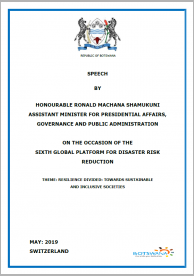
Speech by honourable Ronald Machana Shamukini Assistant Minister for Presidential Affairs, Governance and Public Administration on the occasion of the Sixth Global Platform for Disaster Risk Reduction 2019 (Geneva, Switzerland; 13-17 May, 2019).
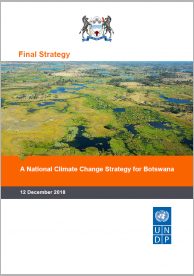
This strategy is designed to provide the impetus for Botswana taking long strides on adaptation and mitigation, whilst meeting its socio-economic development goals, realizing Vision 2036, and achieving the UN Sustainable Development Goals (SDGs).

This strategy aims to achieve the following objectives:
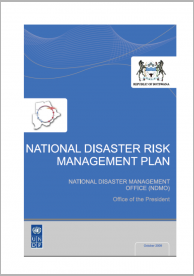
The National Disaster Risk Management Plan (NDRMP) will be the basis to establish policies, strategies and procedures that will guide all levels of society in disaster preparedness, response and risk reduction.
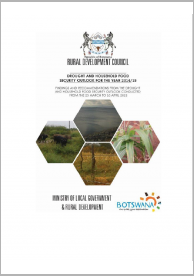
The Drought and Household Food Security assessment for 2014/15 was undertaken from 23 March to 10 April 2015. This exercise is conducted annually to complement early-warning reports compiled on a routine basis by the various Government Departments and Ministries.